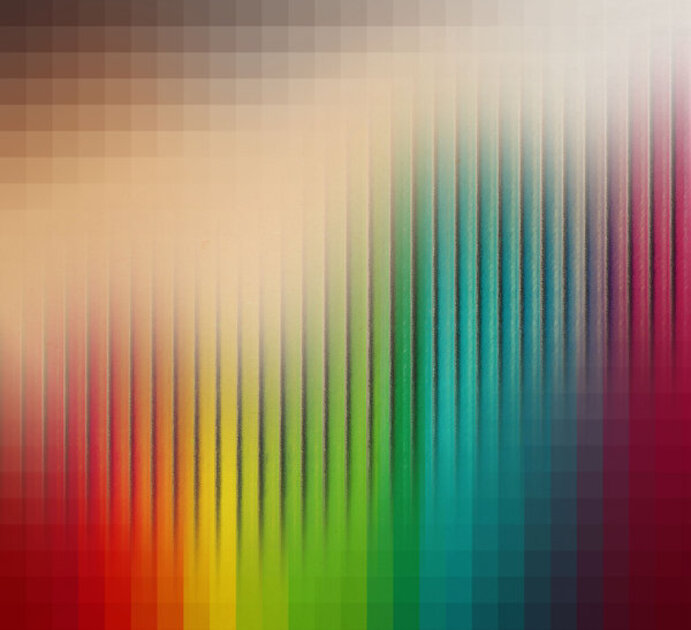
Our Gemara on Amud aleph discusses the ritual of the unsolved murder. The verses state in the beginning of Devarim 21:
ОЏо╝о┤ОЎоЙОЎо┤Оъо╝оИОдохоБОљ ОЌоИОюоИоЌОю ОЉо╝оИОљо▓ОЊоИОъоИОћоЎ Ољо▓ОЕОЂоХОеоЕ ОћО│ ОљОюОДОЎОџ Оао╣ОфохоцОЪ Оюо░ОџоИоЎ Оюо░Оео┤ОЕОЂо░Офо╝оИоћОћо╝ Оао╣ОцохоќОю ОЉо╝оиОЕОѓо╝оИОЊоХоЉОћ Оюо╣оЦОљ ОаОЋо╣ОЊоиоќОб Оъо┤оЦОЎ Оћо┤ОЏо╝оИойОћОЋо╝ОЃ
If, in the land that your God gives you as an inheritance a fallen corpse shall be found in a field, with the assailant unknown
ОЋо░ОЎоИОдо░ОљоЦОЋо╝ Оќо░ОДохОаоХоќОЎОџоИ ОЋо░ОЕОЂо╣Оцо░ОўоХоЉОЎОџоИ ОЋо╝ОъоИОЊо░ОЊОЋо╝оЎ ОљоХОюоЙОћоХоБОбоИОео┤оћОЎОЮ Ољо▓ОЕОЂоХоќОе ОАо░ОЉо┤ОЎОЉо╣оЦОф ОћоХОЌоИОюоИойОюОЃ
your elders and magistrates shall go out and measure the distances from the corpse to the nearby towns.
ОЋо░ОћоИОЎоИоБОћ ОћоИОбо┤оћОЎОе ОћоиОДо╝о░Оео╣ОЉоИоќОћ ОљоХОюоЙОћоХОЌоИОюоИоЉОю ОЋо░ОюоИойОДо░ОЌоАОЋо╝ Оќо┤ОДо░ОаохОЎоЕ ОћоИОбо┤оеОЎОе ОћоиОћо┤оюОЋОљ ОбоХОњо░ОюоиоБОф ОЉо╝оИОДоИоЌОе Ољо▓ОЕОЂоХоцОе Оюо╣ойОљоЙОбо╗ОЉо╝оиОЊоЎ ОЉо╝оИоћОћо╝ Ољо▓ОЕОЂоХоЦОе Оюо╣ОљоЙОъоИОЕОЂо░ОЏоИоќОћ ОЉо╝о░Обо╣ойОюОЃ
The elders of the town nearest to the corpse shall then take a heifer which has never been worked, which has never pulled in a yoke;
ОЋо░ОћОЋо╣Оео┤оАОЊОЋо╝ Оќо┤ОДо░ОаохОЎоЕ ОћоИОбо┤оеОЎОе ОћоиОћо┤оцОЋОљ ОљоХОфоЙОћоИойОбоХОњо░ОюоИОћоЎ ОљоХОюоЙОаоиоБОЌоиОю ОљохОЎОфоИоћОЪ Ољо▓ОЕОЂоХоЏОе Оюо╣ОљоЙОЎохОбоИОЉохоЦОЊ ОЉо╝оќОЋо╣ ОЋо░Оюо╣оБОљ ОЎо┤Оќо╝оИОеохоЉОбои ОЋо░ОбоИойОео░ОцОЋо╝оЙОЕОЂоИоЦОЮ ОљоХОфоЙОћоИОбоХОњо░ОюоИоќОћ ОЉо╝оиОао╝оИойОЌоиОюОЃ
and the elders of that town shall bring the heifer down to an everflowing wadi, which is not tilled or sown. There, in the wadi, they shall break the heifer’s neck.
ОЋо░ОЏо╣оЌОю Оќо┤ОДо░ОаохОЎоЎ ОћоИОбо┤оБОЎОе ОћоиОћо┤оћОЋОљ ОћоиОДо╝о░Оео╣ОЉо┤оќОЎОЮ ОљоХОюоЙОћоХОЌоИОюоИоЉОю ОЎо┤Оео░ОЌо▓ОдОЋо╝оЎ ОљоХОфоЙОЎо░ОЊохОЎОћоХоћОЮ ОбоиОюоЙОћоИОбоХОњо░ОюоИоќОћ ОћоИОбо▓ОеОЋо╝ОцоИоЦОћ ОЉоиОао╝оИойОЌоиОюОЃ
Then all the elders of the town nearest to the corpse shall wash their hands over the heifer whose neck was broken in the wadi.
ОЋо░ОбоИОаоќОЋо╝ ОЋо░ОљоИОъо░ОеоЉОЋо╝ ОЎоИОЊохоЌОЎОаОЋо╝ Оюо╣оцОљ (ОЕОцОЏОћ) [ОЕОЂоИойОцо░ОЏОЋо╝оЎ] ОљоХОфоЙОћоиОЊо╝оИоБОЮ ОћоиОќо╝оХоћОћ ОЋо░ОбохОЎОаохоќОЎОаОЋо╝ Оюо╣оЦОљ ОеоИОљойОЋо╝ОЃ
And they shall make this declaration: “Our hands did
not shed this blood, nor did our eyes see it done
...
ОЏо╝оиОцо╝охОеоЕ Оюо░ОбоиОъо╝о░ОџоИое ОЎо┤ОЕОѓо░ОеоИОљохоцОю Ољо▓ОЕОЂоХОеоЙОцо╝оИОЊо┤оЎОЎОфоИоЎ ОћО│ ОЋо░ОљоиОюоЙОфо╝о┤Офо╝охОЪоЎ ОЊо╝оИоБОЮ ОаоИОДо┤оћОЎ ОЉо╝о░ОДоХоќОеоХОЉ ОбоиОъо╝о░ОџоИоБ ОЎо┤ОЕОѓо░ОеоИОљохоЉОю ОЋо░Оао┤ОЏо╝оиОцо╝охоЦОе ОюоИОћоХоќОЮ ОћоиОЊо╝оИойОЮОЃ
Absolve HashemYour people Israel whom You redeemed, and do not let guilt for the blood of the innocent remain among Your people Israel.” And they will be absolved of bloodguilt.
The act of measurement was not merely for fact finding, but also a ritual unto itself. This is evidenced by the fact that the elders must do it personally and not rely on agents, and also that even if it is obvious which city is closest, the measuring still must be performed, which we learn on today’s daf.
This supports the Rambam’s interpretation (Guide for the Perplexed III:40) that the ritual is designed to cause a newsworthy event, leading to more investigation and witnesses to come forward to solve the murder. Even if the murder is not solved, it will spur the authorities to take steps to protect the population from a suspected murderer even if he cannot be convicted beyond a shadow of a doubt.
However, Ibn Ezra (Devarim 21:7) has a different idea for this ritual:
ОЋОбОЎОаОЎОаОЋ ОюОљ ОеОљОЋ. ОЋОЎОфОЏОЪ ОЕОћОЕОЮ ОдОЋОћ ОюОбОЕОЋОф ОЏОЪ ОћОбОЎОе ОћОДОеОЋОЉОћ ОЏОЎ ОюОЋОюОЎ ОЕОбОЕОЋ ОбОЉОЎОеОћ ОЏОЊОЋОъОћ ОюОћ ОюОљ ОаОќОЊОъОЪ ОюОћОЮ ОЕОЎОћОеОњ ОљОЊОЮ ОДОеОЋОЉ ОъОћОЮ ОЋОъОЌОЕОЉОЋОф ОћОЕОЮ ОбОъОДОЋ ОЋОњОЉОћОЋ ОюОљОЎОЪ ОДОЦ ОљОдОюОаОЋ:
NEITHER HAVE OUR EYES SEEN IT. It is possible that God commanded the city closest to the slain to perform this because if the city had not committed a similar deed, then the murder of a person near their city would not have occurred. God’s thoughts are deep and infinitely beyond our comprehension.
According to Ibn Ezra, the fact that such a tragedy occurs is an indication of moral decline in the nearest city. If not actual murder, other kinds of social and moral breaches led to a lack of protective providence.
Ibn Ezra’s idea is supported by the request for atonement that is part of the ritual. Surely we are not asking to forgive a murderer who has not even been prosecuted! The elders also cannot be asking forgiveness for a crime they did not commit. Thus, they must be atoning for indifference and lack of moral leadership. Furthermore, I believe the ritual of measurement itself is symbolically reminiscent of self-assessment. As they measure to see if their city is the closest, they are inspired to take stock and measure their attitudes and proximity to sin.
Translations Courtesy of Sefaria, except when, sometimes, I disagree with the translation ![]()
If you liked this, you might enjoy my Relationship Communications Guide. Click on the link above.
Rabbi Simcha Feuerman, Rabbi Simcha Feuerman, LCSW-R, DHL is a psychotherapist who works with high conflict couples and families. He can be reached via email at simchafeuerman@gmail.com
 Previous
Previous

